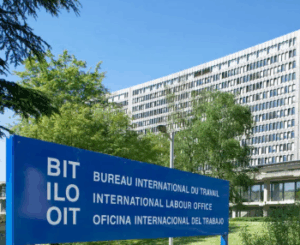 The United Nations Special Rapporteur on the rights of Indigenous Peoples has welcomed the recent Direct Request of the Committee of Experts on the Application of Conventions and Recommendations (CEACR) of the International Labour Organization (ILO), which represent a significant step forward in protecting the traditional occupations of Indigenous Peoples in Indonesia.
The United Nations Special Rapporteur on the rights of Indigenous Peoples has welcomed the recent Direct Request of the Committee of Experts on the Application of Conventions and Recommendations (CEACR) of the International Labour Organization (ILO), which represent a significant step forward in protecting the traditional occupations of Indigenous Peoples in Indonesia.
The Committee’s observations highlight the persistent challenges faced by communities such as the Ompu Ronggur, who are striving for recognition as customary law (adat) communities — a crucial condition for securing access to their ancestral lands and practicing traditional subsistence activities. Without such recognition, these communities remain in a position of legal and social vulnerability, particularly in the face of land disputes or external pressures on their resources.
Based on the widely ratified ILO Convention No. 111 on Discrimination in Employment and Occupation, the CEACR has issued three concrete recommendations to the Indonesian government:
- To adopt proactive and inclusive measures, in consultation with the affected communities and local governments, to remove the obstacles that hinder formal recognition and to facilitate the resolution of land disputes.
- To review the current legal framework, including laws and practices related to access to land and natural resources by adat communities, ensuring that there are no discriminatory provisions based on race, national origin, or cultural identity.
- To guarantee access to justice and effective legal protection, even in situations where legal uncertainty regarding the status of many Indigenous communities persists, so that this uncertainty does not result in further barriers to the full enjoyment of their rights.
The Committee has also requested that the Indonesian government provide detailed information on the steps taken to implement these recommendations, as well as on any institutional responses to the findings of the 2015 national inquiry conducted by the National Commission on Human Rights (Komnas HAM), which focused on the rights of Indigenous Peoples over their territories within forest zones.
The Special Rapporteur makes a direct call to Komnas HAM to take an active role in this process by leading an inclusive initiative to support the implementation of the ILO’s recommended measures. He also reiterates his willingness to provide technical assistance and support, acknowledging the essential role that this national institution can play in upholding the collective rights of Indigenous Peoples in Indonesia.
An Evolutionary Interpretation of ILO Convention No. 111
The recent Direct Request addressed to Indonesia by the ILO Committee of Experts, based on Convention No. 111, represents a significant step forward in the international protection of Indigenous Peoples’ rights. Traditionally, this convention has focused on combating discrimination in formal employment. However, in this case, the Committee expands its interpretation to include Indigenous Peoples’ traditional occupations—such as farming, fishing, or gathering—recognizing that access to these ways of life must also be protected against discrimination.
This innovative reading directly links the right to work with access to land and natural resources, which are essential for the cultural and economic survival of many Indigenous communities. The Committee identifies that the lack of legal recognition and restrictions on territorial access constitute structural forms of discrimination.